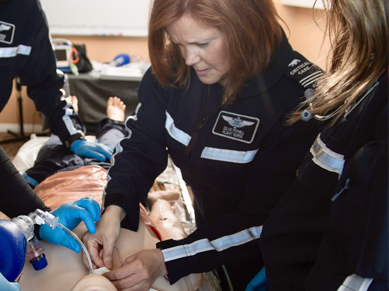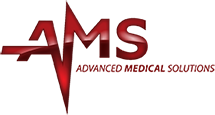The AMS Healthcare Education unit can provide many nationally recognized healthcare certification programs including a wide range of courses from First Aid to Advanced Cardiac Life Support. We are currently working with the Canadian Medical Association to receive accreditation for our Critical Care Flight Paramedic and Nurse Program.
We have recently developed a technical medical simulation lab where students are trained and conduct advanced medical procedures on high-fidelity, critical care manikins. This simulation lab is mobile and can travel across Northern Canada to increase access to healthcare education and skill development.
This lab is the first of its kind that is accessible to healthcare professionals in the North. Healthcare professions can obtain and maintain certifications and ongoing continuing medical education through AMS’s online training academy that is accessible from remote communities.
We would love to bring these classes to your community or team. AMS can also design custom course offerings for your specialized learning needs.
Education Calendar
Events in April 2024
| MonMonday | TueTuesday | WedWednesday | ThuThursday | FriFriday | SatSaturday | SunSunday |
|---|---|---|---|---|---|---|
April 1, 2024
|
April 2, 2024
|
April 3, 2024
|
April 4, 2024
|
April 5, 2024
|
April 6, 2024
|
April 7, 2024
|
April 8, 2024
|
April 9, 2024
|
April 10, 2024
|
April 11, 2024
|
April 12, 2024
|
April 13, 2024
|
April 14, 2024
|
April 15, 2024
|
April 16, 2024
|
April 17, 2024
|
April 18, 2024
|
April 19, 2024
|
April 20, 2024
|
April 21, 2024
|
April 22, 2024
|
April 23, 2024
|
April 24, 2024
|
April 25, 2024
|
April 26, 2024
|
April 27, 2024
|
April 28, 2024
|
April 29, 2024
|
April 30, 2024
|
May 1, 2024
|
May 2, 2024
|
May 3, 2024
|
May 4, 2024
|
May 5, 2024
|
Special Notes
- Completer Courses require completion of an online module.
- ACLS and PALS require a current Heart and Stroke CPR for Health Care Providers Course
- Course costs include books and training materials
Select a course below for details:
First Responder or Advanced First Aid
40 – 80 Training Hours (Various Types)
Course Content:
CPR and breathing emergencies in adults; advanced first aid; use of oxygen equipment; AED; primary and secondary assessment skills; first aid for bleeding; sudden illness and minor injury; return to work protocols and record keeping for the occupational healthcare provider.
Who Would Benefit:
Business, industry and government agencies with employees that have an occupational requirement to be Level 2 Advanced First Aid trained.
Regulations and Guidelines:
Meets British Columbia Occupational Health and Safety (OH&S) regulations administered through WorkSafe BC.
Course Size: 12 Students
International Trauma Life Support (ITLS)
16 Training Hours
Course Content:
ITLS Provider includes 8 hours of classroom instruction, 8 hours of hands-on skills training, and testing for ITLS Basic or Advanced certification. Innovative skills stations let you practice the abilities appropriate for your level of certification:
Patient assessment and management
Basic and advanced airway management
Spinal motion restriction—rapid extrication, short backboard, helmet management, log roll and long backboard/scoop stretcher utilization
Extremity immobilization and traction splint application
Needle chest decompression and fluid resuscitation (for Advanced certification)
With its comprehensive approach to core knowledge and skills,
Who Would Benefit:
ITLS Provider is appropriate for all levels of EMS personnel—from EMT-Bs and first responders to advanced EMTs, paramedics, trauma nurses, and physicians. This course can also be tailored for athletic trainers.
Course Size: 6 -12 Students
Advanced Cardiac Life Support (ACLS)
14.5 Training Hours
Course Content:
ACLS is an advanced, instructor-led classroom course that highlights the importance of team management of a cardiac arrest, team dynamics and communication, systems of care and immediate post-cardiac-arrest care. Specific skills in airway management and related pharmacology are also featured. Skills are taught through discussion and group learning, while testing stations offer case-based scenarios using simulators.
Pre-Requisite is a Current Heart and Stroke BLS for Health care Provider Certification
Who Would Benefit:
PALS Provider is appropriate for advanced EMTs, Paramedics, Nurses, Respiratory Therapists and Physicians
Course Size: 6 -12 Students
Pediatric Advanced Life Support (PALS)
14.5 Training Hours
Course Content:
PALS Provider course enables health-care professionals to develop the knowledge and skills necessary to better recognize and treat critically ill infants and children. The course materials are scenario-based, and a team approach is used to teach emergency management of pediatric patients approaching or already in respiratory or cardiac arrest, from the early minutes through patient stabilization and/or the transport phases of a pediatric emergencies
Pre-Requisite is a Current Heart and Stroke BLS for Healthcare Provider Certification
Who Would Benefit:
PALS Provider is appropriate for Advanced EMTs, Paramedics, Nurses, Respiratory Therapists andPhysicians
Course Size: 6 -12 Students
Neonatal Resuscitation Program (NRP)
Course Content:
4 Hours Classroom 4 Hours Online Pre-course
NRP is an educational program jointly sponsored with the American Heart Association (AHA). The course has been designed to teach an evidence-based approach to resuscitation of the newborn to hospital staff who care for newborns at the time of delivery, including physicians, nurses and respiratory therapists.
Pre-Requisite is a Current Heart and Stroke BLS for Healthcare Provider Certification
Must complete self review online exam before course
Who Would Benefit:
PALS Provider is appropriate for advanced EMTs, Paramedics, Nurses, Respiratory Therapists andPhysicians
Course Size: 6 students
ENPC
20 Training Hours
Course Content:
Accurate assessment of a child with an acute illness or injury requires special knowledge and skills. ENPC gives nurses the tools to provide expert care for patients from birth to adolescence.
Pediatric Assessment Triangle
Early Intervention
Family Presence
ENA developed the Emergency Nursing Pediatric Course to establish a standardized body of pediatric emergency nursing knowledge and to improve the care of all pediatric patients. This fourth edition course combines interactive learning with scenario-based assessments to give nurses a comprehensive learning experience. The course includes:
Must have textbook 30 days before course and complete pre-readings and pre-course exam
Who Would Benefit:
ENPC is appropriate for Nurses and Advanced Paramedics with specific need to care for children in the Emergency setting.
Course Size: 6 – 12 students
TNCC
TNCC, widely recognized as the premier course for hospitals and trauma centers worldwide, empowers nurses with the knowledge, critical thinking skills, and hands-on training to provide expert care for trauma patients.
Rapid identification of life-threatening injuries
Comprehensive patient assessment
Enhanced intervention for better patient outcomes
ENA developed The Trauma Nursing Core Course to establish a standardized body of trauma nursing knowledge and to improve the care of all trauma patients. This seventh edition course combines interactive learning with scenario-based assessments to give nurses a comprehensive learning experience.
Must have textbook 30 days before course and complete pre-readings and pre-course exam
Who Would Benefit:
ENPC is appropriate for Nurses and Advanced Paramedics with specific need to care for children in the Emergency setting.
Course Size: 6 – 12 students
CTAS
6-8 Hours
Canadian Triage Acuity Scale Course
Course Objectives
The participant will be able to:
Review and enhance your patient assessment skills
Apply professional standards of emergency nursing practice in Adult and Pediatric triage
Utilize the CEDIS Presenting Complaint List
Prioritize patient care based on CTAS
Demonstrate an understanding of patient flow, care processes and communication in the ED
Who Would Benefit:
CTAS is appropriate for Nurses who perform triage of patients in either rural or urban facilities.
Course Size: 6 – 12 students
Red Cross Training - Emergency First Aid & CPR
Basic one-day course offering an overview of first aid and cardiopulmonary resuscitation (CPR) skills for the workplace or home.
Duration: 8 hours.
Red Cross Training - Emergency Child Care First Aid & CPR
Basic one-day course offering an overview of first aid and cardiopulmonary resuscitation (CPR) skills with a focus on childhood injuries and illnesses.
Duration: 8 hours.
Red Cross Training - Standard First Aid & CPR
Comprehensive two-day course offering first aid and cardiopulmonary resuscitation (CPR) skills for those who need training due to work requirements or who want more knowledge to respond to emergencies at home.
Duration: 16 hours.
Red Cross Training - Standard Child Care First Aid & CPR
Comprehensive two-day course offering first aid and cardiopulmonary resuscitation (CPR) skills with a focus on childhood injuries and illnesses.
Duration: 16 hours.
Red Cross Training - Wilderness & Remote First Aid
Basic level of Wilderness & Remote First Aid that covers material in Standard First Aid & CPR, plus special material on techniques for wilderness and remote areas.
Duration: 20 hours (more than 25% of course taught in non-urban setting, if possible 50%)
(includes Standard First Aid)
Red Cross Training - Marine Basic First Aid
Basic two-day course offering an overview of first aid and cardiopulmonary resuscitation (CPR) skills for the marine/fishing industry.
Duration: 16 hours.
Red Cross Training - Advanced Wilderness & Remote First Aid
Comprehensive first aid and CPR techniques for those who need a higher level of training to work and respond to emergencies in isolated or wilderness settings.
Duration: 40 hours (more than 50% of course taught in non-urban outdoor setting).
Red Cross Training - Marine Advanced First Aid
Comprehensive first aid and CPR techniques and scenarios for those who need a higher level of training to work and respond to emergencies in a marine setting.
Duration: 32 hours.
Red Cross Training - First Responder
First aid and CPR skills for professional first responders or those wanting to become first responders. Course teaches techniques for sustaining life, preventing further injuries, and caring for illnesses and injuries until the next level of medical personnel arrives. Includes CPR level HCP and AED.
Duration: 40 hours.
Red Cross Training - Emergency Medical Responder
Course is for those providing a professional level of emergency response including firefighters, law enforcement officers, and emergency medical services personnel. Includes CPR level HCP and AED. Meets the Paramedic Association of Canada National Occupational Competency Profiles for the practitioner level of emergency medical responder (EMR).
Duration: 80-120 hours; 40-60-hour upgrade course

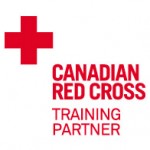
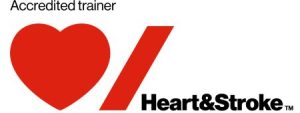
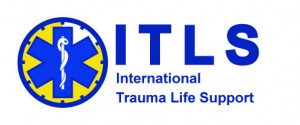
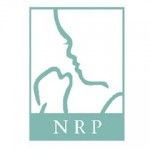
Have questions about our Training & Clinical Education Services?
Click Here To Contact Us For Info on Training
Fill out the form below and an AMS representative will contact you within 24hrs.
